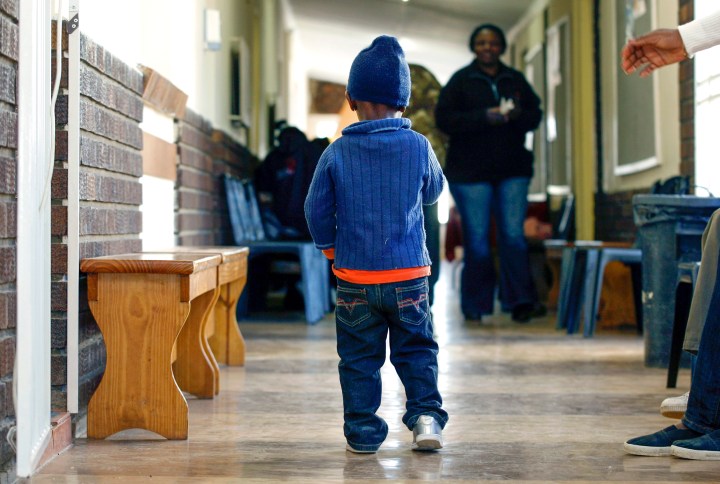Coronavirus: Spotlight
Children and Covid-19: What we know

All schools in South Africa will close from Wednesday 18 March as part of South Africa’s efforts to reduce transmission of the Covid-19 virus. Kathryn Cleary rounds up what we do and do not know about the virus in children.
On 15 March President Cyril Ramaphosa announced that South Africa had 61 confirmed cases of Covid-19, and the country was implementing strict measures to limit contact between persons and reduce transmission. One of the measures the president announced was that all schools in the country were to close from this Wednesday, 18 March, through the Easter weekend.
This morning, 16 March, at the inter-ministerial briefing on Covid-19 following the president’s announcement, Minister of Basic Education Angie Motshekga said that June holidays would be cut short to make up for lost time. She added that once opened, schools would be encouraged to extend tuition hours. Schools are also encouraged to give learners workbooks and worksheets to allow home-study of curriculum-based initiatives.
Last week the Department of Basic Education issued NICD-approved guidelines for the prevention and management of the virus in South African schools. While little is known about how the virus specifically affects children, measures put in place to limit contact between children can lower the risk of any possible transmission.
The guidelines include information on learners returning from travel through high-risk Covid-19 areas, those who may have come into contact with a confirmed case and those who may have come into contact with a suspected case.
Should a learner come into contact with a confirmed case of Covid-19, the DBE states that the learner must be self-quarantined for 14 days while being monitored for symptoms. However, if a learner has come into contact with a person with confirmed Covid-19 who has tested negative, the learner cannot be excluded from school.
Similarly, if a learner has come into contact with a suspected case, no exclusionary measures are required until testing results are finalised.
Since the publication of the guidelines, South Africa has imposed travel restrictions on high-risk countries including Italy, Iran, China, South Korea, Spain, Germany, the US and the UK. These restrictions will take effect on 18 March. South Africans returning home from these countries will also be subject to testing and self-quarantine.
So far there has only been one confirmed case of Covid-19 in a child under the age of 15 in the Western Cape, a 14-year-old. Reportedly the child had travelled to the US and Dubai. It is not known how many children have been tested for the virus to date.
Risk of infection
Information about children and Covid-19 is limited, but research from China suggests that children could face a similar risk of infection as adults. In a study from Shenzhen, China, 391 confirmed cases and 1,286 of their close contacts were analysed and it was found children under the age of 10 in this group were at as much risk of infection as adults.
The infection rate among children under the age of 10 in the study was reported at 7.4%, compared to the study average of 7.9%. The study reported that children did not show severe symptoms.
Milder symptoms
The United States Centers for Disease Control (CDC) states that Covid-19 symptoms are not different in children compared to adults; however, children who have tested positive for the virus have expressed milder symptoms.
A report from the World Health Organisation (WHO) from 6 March states that initial data indicates that children are less affected by Covid-19 than adults, noting that adults are transmitting the virus to children. While comparisons between Covid-19 and influenza have been made, children do not seem to be the drivers of transmission for Covid-19, as they often are for influenza.
“Those most at risk for severe influenza infection are children, pregnant women, elderly, those with underlying chronic medical conditions and those who are immunosuppressed. For Covid-19, our current understanding is that older age and underlying conditions increase the risk for severe infection,” the report states.
Staying healthy and safe
Another document from Unicef suggests ways that parents and caregivers can protect and care for children during the pandemic. This includes monitoring a child’s potential symptoms and contacting their doctor for further information and possible testing, while noting that Covid-19 symptoms are similar to the common cold and flu.
The document also encourages parents/caregivers to acknowledge the mental and emotional stress the pandemic could have on children, including trouble sleeping, bedwetting, stomach and head pain, and expressions of anxiety. These are normal responses to a traumatic event, and parents/caregivers are encouraged to respond to them in a way that is comforting and understanding.
Tips for alleviating mental and emotional stress on children include making time to play and relax, sticking to as normal of a routine as possible, providing age-appropriate facts about the pandemic and explaining to them what they can do to keep themselves and others healthy and safe.
This article will be updated as more information about Covid-19 and children becomes available. At the time of publication, the Department of Health could not be reached for comment.
Since the president’s address, one more case of Covid-19 has been confirmed, bringing the country’s total to 62.*The study from Shenzhen, China has not been peer-reviewed. DM
This article was produced by Spotlight – health journalism in the public interest.

"Information pertaining to Covid-19, vaccines, how to control the spread of the virus and potential treatments is ever-changing. Under the South African Disaster Management Act Regulation 11(5)(c) it is prohibited to publish information through any medium with the intention to deceive people on government measures to address COVID-19. We are therefore disabling the comment section on this article in order to protect both the commenting member and ourselves from potential liability. Should you have additional information that you think we should know, please email [email protected]"




